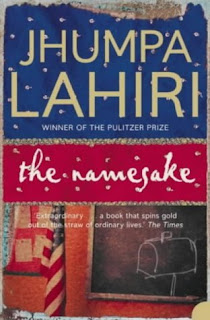My tryst with South Asian fiction, more specifically Indian
fiction began as a literature student. As a third year English undergraduate in India, we had a module on Indian writers as part of our course. We had read only English writers till then, and were eagerly
looking forward to the experience. I was particularly excited. There was a craving
to read something closer home, something I could relate to as an Indian reader.
Initial days:
As a child, reared on a steady diet of Enid Blyton, Nancy Drew and later Grisham, my reading was largely unsupervised. Although I had read my share of classics, Indian writers unlike today, were not easily found in bargain book stores.
 |
| http://www.series-books.com/ |
Indian writers:
Finally, I thought will be reading something from my realm;
Indian mentality, culture and experiences. I was disappointed. Thanks to an
outdated syllabus, most texts were written in bygone independence era with themes
of caste conflicts, oppression, exploitation of the poor by the rich (Mulk Raj
Anand’s Coolie) or stringent, obsolete religious practices (Anand murthy’s
Samskara) back in the 19th and 20th centuries. The themes
did not resonate with my metro city upbringing. Also, the language was
constrained and inhibited; after all English was not a native language.
There were few exceptions though. RK Narayan’s Guide written
in the post-independence era and later made into a famous Bollywood classic is
about a self-centred corrupted man who takes to wrongdoing to suit his purpose.
It is one of the few novels that transcends the conventional themes and is one
of the few texts that can be enjoyed even today. However, such examples are very
few and far in between.
 |
| http://www.yuvasuneet-karampudi.in |
The turning point occurred when I moved to another university
to pursue a master’s degree. Provided
with a better course list, we were now exposed to an array of contemporary texts
that enhanced our experience of Indian writing.
Blazing trail of new
writers:
This time around, we discovered Arundhati Roy’s God of Small
Things and thoroughly enjoyed it. I suppose, its success was proof that local talent armed with a definitive instead of an imitative style was now
ready to showcase good quality of writing.
 |
| amazon.co.uk |
By the 2000s, Indian writing also saw a mushrooming of Indian
writers based outside India. Chitra Banerjee Divakaruni and Jhumpa Lahiri were popular
names and their books were most sought after by students like us. I still
remember bunking classes to finish Chitra Banerjee Divakaruni’s Sister of my
heart or the hype surrounding Jhumpa Lahiri’s “Namesake”. This was mainly because most Indian
households, by now, had at least one relative who was based overseas. Their
stories was something, Indian readers like us, could relate to.
As someone who had never been out of India, I found the dual
identity concept exotic, just as my other friends. Also, the writing was
accessible and we all loved the way the language flowed, outlining the
immigrant experience and its dilemmas.
Crossing over:
Little did I foresee that I too shall be moving over to the
other side when I settled in the UK after marriage. It was as if a whole new
experience unfolded in front of me. Although, by now there were more Asians in
the UK as compared to two decades ago, I was living in a predominately white
community where my Indian accent and hair colour proclaimed my racial status.
 |
| goodreads.com |
I could now understand what it meant to be an immigrant, the need
to blend in, yet retain cultural connections. I found the experience clearly
reflected in many of the novels by UK based south East Asian writers. It was a
fascinating time as I discovered many new names and shared their insight into
what went into the making of a British Asian.
However, I do keep a track of what Indian authors are
writing, during my visits back home. It was exciting to find shelves packed
with various genres ranging from thrillers, chick lit, campus novels to coming
of age ones.
Indian writing has come a long way indeed. It has a
definitive style and more importantly, reflects the contemporary Indian society
and its myriad aspects, in its works. Coming to the UK has opened me up to
various south Asian writers who offer a parallel yet unique experience through
their books.
It has been a fascinating reading journey, one that started in childhood, that continues to empower and enlighten, till now.
No comments:
Post a Comment